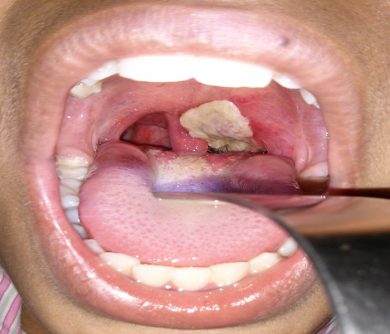The Federal Government yesterday called on governors of the 19 states with confirmed cases of diphtheria to reintroduce face mask wearing at public gatherings.
It said the advice was necessary because the confirmed cases had soared to 8,406.
The cases were recorded in 114 Local Government Areas (LGAs) in 18 of 36 states and Abuja.
Diphtheria is a highly contagious vaccine-preventable disease caused by strains of bacteria called corynebacterium.
It causes difficulty in breathing, heart rhythm problems and death.
Coronavirus(COVID-19), which led to worldwide mandatory use of facemasks, diphtheria spreads among people mainly by direct contact or through the air via respiratory droplets.
The Nigeria Centre for Disease Control and Prevention (NCDC) had about three months ago said the FCT recorded the first case that resulted in the death of a four-year-old.
At a news conference yesterday, the Executive Director of the National Primary Health Care Development Agency (NPHCDA), Dr Faisal Shuaib, and NCDC Director-General, Dr. Ifedayo Adetifa, said out of the 8,406 confirmed cases, 6,202 (73.7 per cent) were of victims aged between one year and 14 years.
The news conference was also attended by World Health Organisation (WHO) Deputy Country Representative, Alexander Chimbaru and Country Director of the United States Centres for Disease Control and Prevention (USCDC), Mary Boyd.
Adetifa, who gave the breakdown of the cases, described Kano as the epicentre of the disease.
According to him, Kano State has reported 7,188 cases, representing 86 per cent of the total infection.
Yobe State ranks second with 775 cases, Katsina, 232; Borno, 118; Jigawa, 23; Bauchi, 20; Kaduna, 17; Lagos, eight and FCT, six; Gombe, five; Osun, three; Sokoto, three and Niger, two.
Cross River Enugu, Imo, Nasarawa, Kebbi and Zamfara states have one each.
Adetifa said: “As of today (yesterday), there have been 13,204 reported suspected cases out of which 8,406 were confirmed cases from 114 local government areas in 19 states and the FCT.
“Of the 8,406 confirmed cases, 6,202 (73.7 per cent) were aged one to 14 years. Infants: less than one per cent; one to four years: 14.40 per cent; five to nine years: 32.2 per cent; 10 to 14 years: 27.1 per cent; adults above 20 years: 15 per cent.
“Our records have shown that most of the confirmed cases of diphtheria in the country were unvaccinated against diphtheria.
“Of the 8,406 confirmed cases, 5,371 (64 per cent) are either unvaccinated or partially vaccinated, 966 (11 per cent) with unknown vaccination status, while 2,069 (25 per cent) are fully vaccinated against diphtheria.
“The recently-deployed National Rapid Response Teams (NRRTs) are offering on-site surveillance and response support in affected states.’’
He added that the NCDC had activated diphtheria surveillance and public health measures in the affected states and FCT.
Adetifa explained that through laboratory networking, the NCDC had continued to conduct preliminary and confirmatory testing at sub-national and national levels.
He added: “Currently, NCDC has 14 laboratories in the Diphtheria Laboratory Network with capacity to support diphtheria testing.
“Optimisation of five additional laboratories at the subnational level is currently on-going.
“NCDC has conducted training for laboratory personnel at the sub-national level on diagnostic processes, quality assurance, biosafety, biosecurity procedures, and data management.”
Adetifa also said the installation of laboratory equipment (biosafety cabinets, autoclaves, and incubators) were on-going in Kaduna, Katsina and Bauchi states to assist in the optimisation of laboratories there.
He said security challenges were limiting accessibility for some NRRTs in some local government areas.
Shuaib, who is also the co-chair of the National Emergency Task Force and Coordination for Diphtheria in Nigeria, called on “governors of the affected states to institute face-covering requirements, such as facemasks in public gatherings.”






